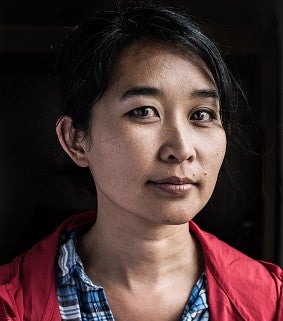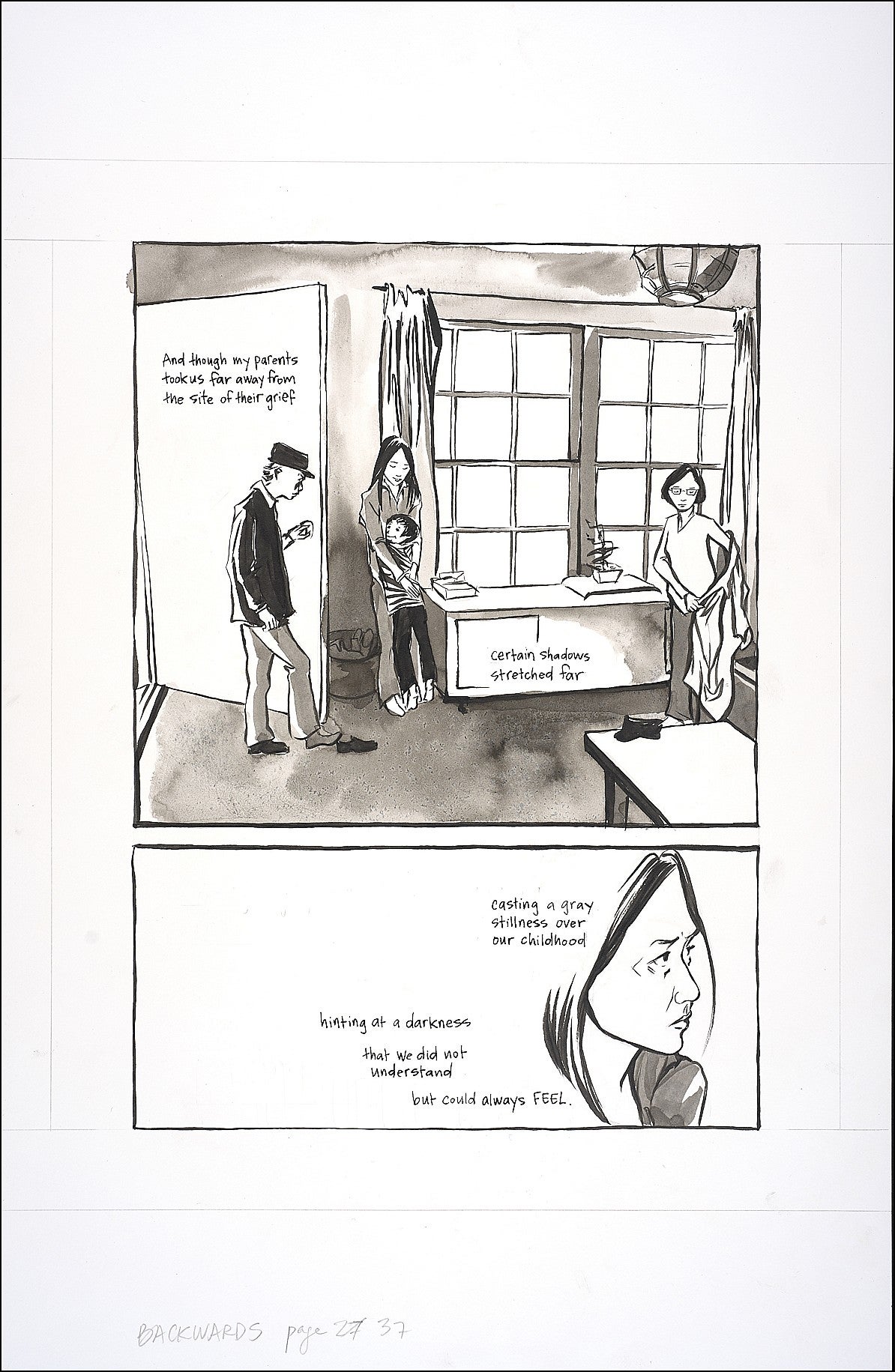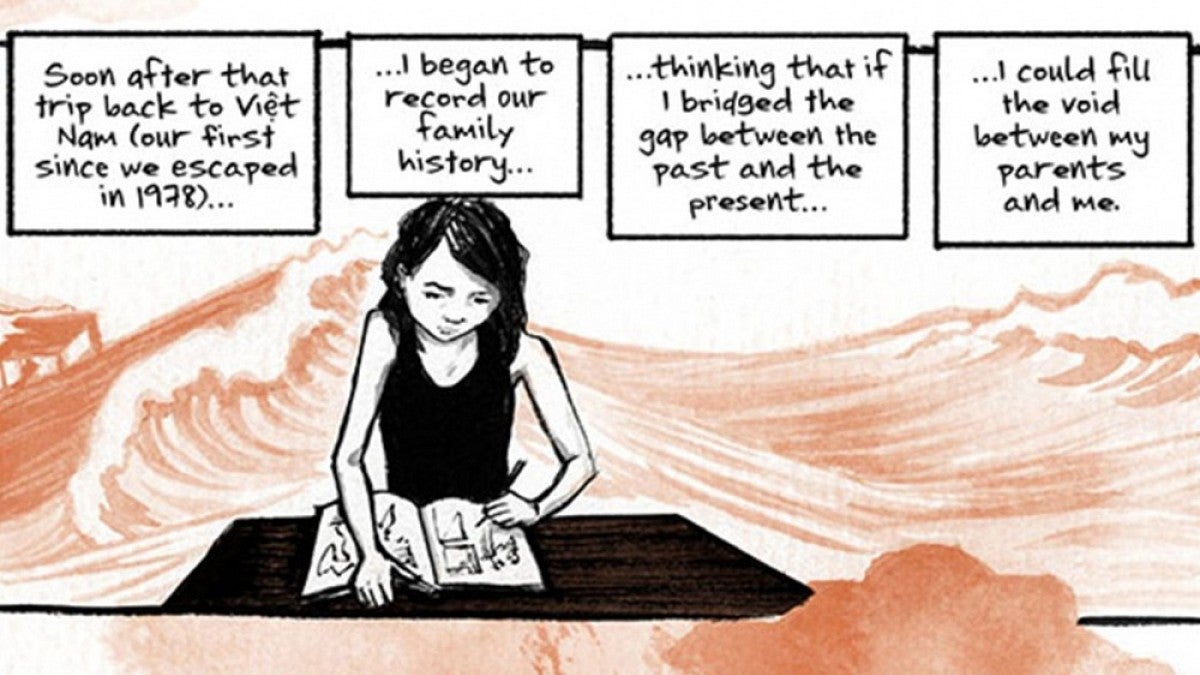It’s a book that some people say “makes everyone cry.”
The book is “The Best We Could Do” by Thi Bui, and Maddy Do, co-director of the UO Vietnamese Student Association, agrees with that sentiment. The book, a striking graphic novel about Bui’s family and the Vietnamese refugee experience, was selected as the University of Oregon’s Common Reading book for the 2018-19 academic year.
Bui, an accomplished artist and faculty member at the California College of the Arts, will be at the UO Jan. 30 through Feb. 1, taking part in a series of events designed to further unite the campus around the novel and its powerful themes.

Bui’s “hyperpersonal” story strikes a chord with many. She said hearing about the emotional impact her book has on people, as Maddy Do described, is not out of the ordinary.
“When I talk to college students after they’ve read the book, they usually tell me they cried and then called their parents when they finished reading,” Bui said. “I think that’s one of the best ways to measure success with this book. The younger generation wants to connect better with their parents and struggle with how to go about doing that. My book seems to help with the logistics of bridging that gap.”
Do, a senior political science major, said reading the novel gave her a better understanding of why her parents, both refugees who left Vietnam as children, are reluctant to talk about the traumatic experiences they had in their journeys to the United States, which often continued after their arrival.
The connection created between Do and her parents through the book isn’t where the connections end with this story. Seemingly, the connections created by the Common Reading program are anything but common.
The Common Reading selection is given to every first-year student upon entering the university to serve as an introduction to academic conversation at the university level. This initial introduction to community-building and academic interest is a key component of larger student success efforts underway at the UO.
About 73 percent of first-year students who responded to an orientation survey reported they had read at least a portion of the book by mid-October 2018, according to Julie Voelker-Morris, the faculty fellow who leads the program at the UO. Overall, more than 5,300 copies of the book were distributed to students, faculty members, staff and administrators this year, the largest circulation in the program’s history at the UO, with 4,200 of the books being given to students.

Voelker-Morris said nearly 2,500 students have been assigned the book as part of a course and 60 courses are using the book as part of their curriculum this year. The program, in its fifth year as a campuswide initiative, is used as a mechanism to generate interdisciplinary dialogue.
The community-building aspects of the Common Reading program, and this year’s book in particular, is highlighted by Lynn Fujiwara, associate professor of ethnic studies, who is one of the moderators in Thursday’s conversation with Bui.
Fujiwara, who uses the book in her Ethnic Studies 100 course, also worked with other professors across campus to put together the curriculum guide for this year’s book. She said not only does the book allow people to connect over conversations about difficult issues such as war, violence and treatment of refugees, but it also connects faculty members in their plans to incorporate the book into their courses.
“It was amazing to sit around the table and talk about the mission of educating and pedagogy … to hear the perspective of advisors and to talk about it with fellow scholars,” Fujiwara said. “It was amazing building community with all of these people I would not normally interact with from all across campus.”
Bui said she hopes her time on campus will be interactive and useful to those who attend the events, with the understanding that people have developed their own relationships with the book.
“I don’t see myself as an ambassador for the book anymore,” she said. “The book is out there having its own life, so I’m just happy to come along and eavesdrop on the conversations that are being had.”
—By Kim Lamke Calderon, University Communications


